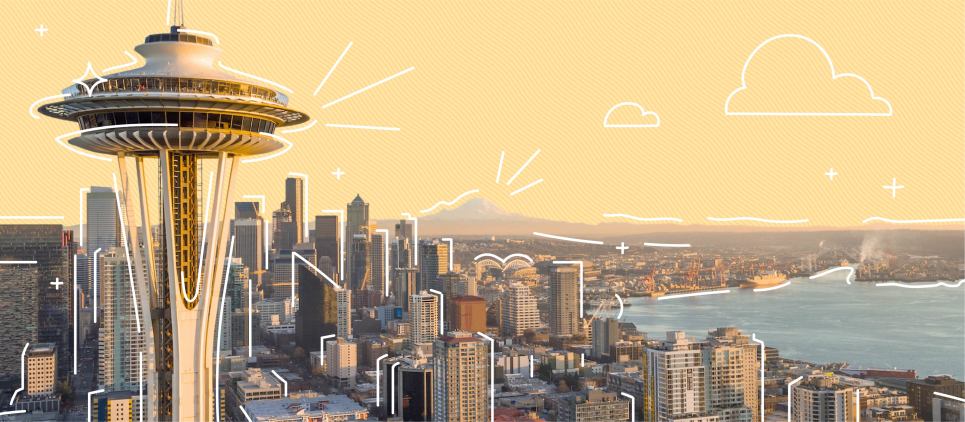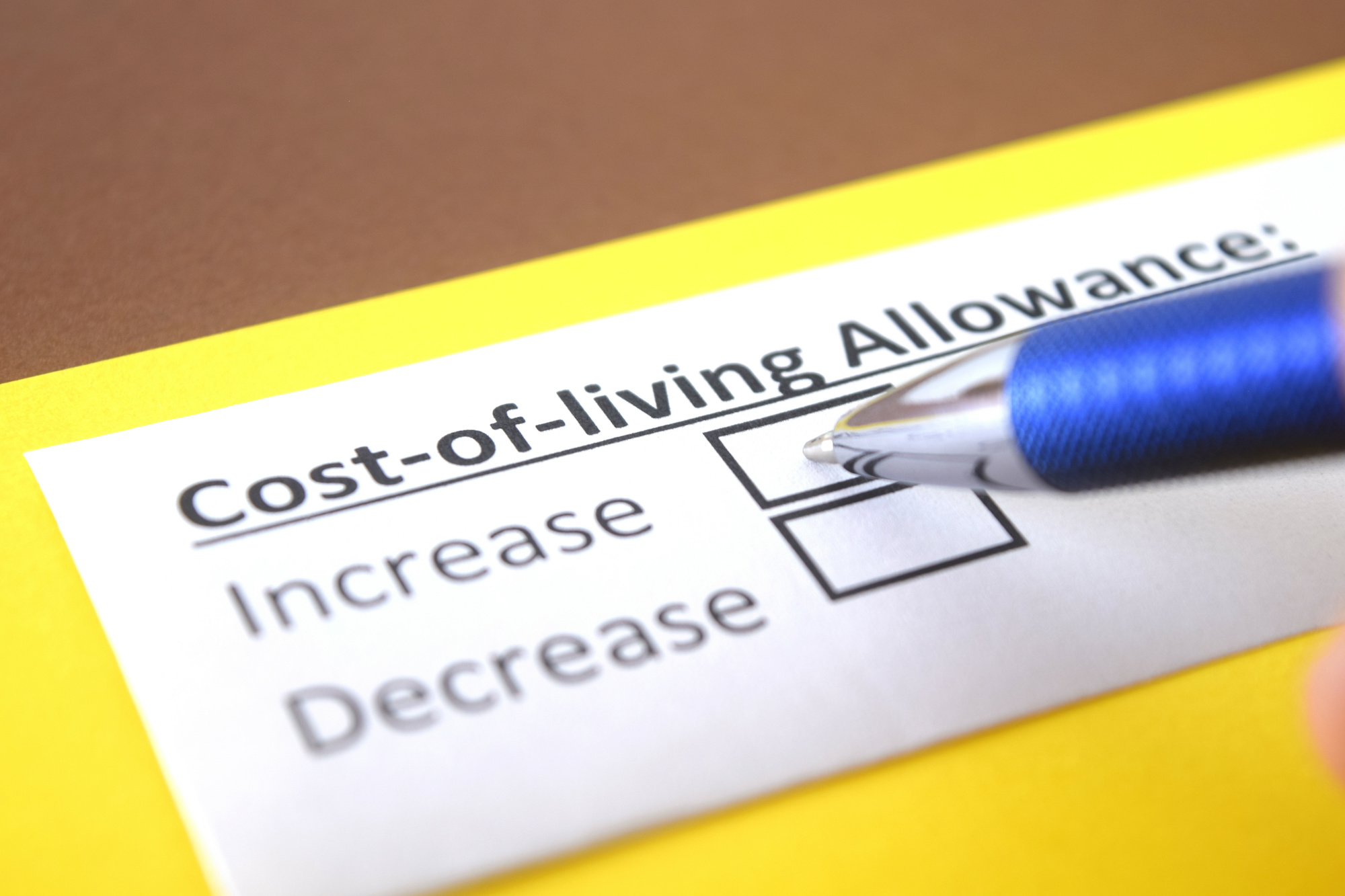What is the real cost of living in Seattle, WA?
Many household names hail from Seattle—from multinational companies like Starbucks, Nordstrom, and Boeing to international bands including Nirvana and Pearl Jam.
As one of the country’s most educated cities—more than 60% of Seattle’s adult residents have graduated college—entrepreneurial spirit is in the air in this Pacific Northwest metropolis. Over the past decade, the Emerald City has experienced an astounding 23.8% growth rate, thanks in large part to the city’s rise as a leading hub for technology jobs. With 2,244 tech companies based in Seattle—including Washington-grown tech giants Amazon and Microsoft—this does mean that Seattle’s cost of living is quite high.
On Numbeo’s cost of living index, which factors in the cost of consumer goods prices, including groceries, restaurants, transportation, and utilities, Seattle scored 87.50 out of 100 in July 2020. (New York City is the index’s benchmark with a score of 100.) When you add rent prices to the cost of living calculator, Seattle’s score drops to 80.04, which is slightly above the ranking for Los Angeles, but almost 25 points below San Francisco, a similarly tech-oriented West Coast city.
Payscale.com marks Seattle’s cost of living as 49% higher than the national average, pointing to the city’s average housing cost as the primary source for residents’s elevated expenses.

Table of contents
Housing: Rental pricesHousing: Home purchase pricesUtilities costFood costTransit costAverage salaryHousing: Rental prices
If you’re considering a move to Seattle, the biggest financial hurdle you’ll likely face is housing affordability. Rental prices in Seattle are much higher than the $1,463 national average—as of January 2021, renters paid a monthly average of $1,928. This number is 11% lower than the previous year, due in part to the COVID-19 pandemic.
The city’s most expensive neighborhoods are Belltown and Pike Market, where renters pay an average of $2,429 per month. In other popular neighborhoods like Ballard, Pioneer Square, and Broadway/Capitol Hill, monthly rents are slightly closer to the citywide average, with asking prices typically between $1,880 and $1,902. Seattle’s more affordable neighborhoods include Innis Arden, Richmond Beach, and The Highlands, where rents cost, on average, $1,322 per month.
Even if these numbers sound high, living in Seattle doesn’t have to be out of reach: Coliving with roommates allows you to spend significantly less than the average cost of solo housing.
Housing: Home purchase prices
The median home purchase price in Seattle was $816,718 as of February 2021, which is roughly three times the national median. However, home prices in Seattle vary considerably based on location. In residential neighborhoods near Downtown Seattle, such as Magnolia and Queen Anne, median-priced houses sell for over a million dollars. Meanwhile, in South Seattle neighborhoods like Rainier Beach and Columbia City, you can find homes priced around $679,254.
Utilities cost
Most Seattleites pay around $203 per month for basic utilities, which covers electricity, gas, water, and garbage pickup. With internet costing an average of $64 more per month, this adds up to a total of almost $40 above the national average.
Food cost
Washington residents pay some of the highest sales taxes in the country; Seattle’s total sales tax is 10.1%, which applies to all prepared food at restaurants and bars.
In Seattle, a three-course meal for two at a mid-range restaurant will cost an average of $80. Meanwhile, the average price for a one-person meal at an inexpensive restaurant is $17.50. This means that dining at an “inexpensive restaurant” in Seattle will cost around $2.50 less than in Boston and Los Angeles, but mid-range eateries will set you back roughly the same amount in all three cities.
While most groceries are exempt from Washington’s state and city sale taxes, Seattleites still spend a minimum average of $412 on monthly groceries, which is about $70 more than the national average.

Transit cost
Walkscore.com pegs Seattle as the eighth most walkable large city in the United States, giving the downtown neighborhoods of Belltown, Pioneer Square, and First Hill nearly perfect scores for walkability and local transit.
Seattle’s King County Metro and Sound Transit systems operate regional bus, light rail, and ferry lines for commuters. A one-way transit ticket typically costs $2.75, which is the same price as New York City’s public transit, but a dollar more than the average cost in Los Angeles.
While a car-free life in Seattle is possible, many residents choose to own a vehicle for quick access to the city’s surrounding nature areas. Unfortunately, Seattle has some of the nation’s worst traffic, and gas isn’t cheap. According to GasBuddy.com, the average price for a gallon in Seattle is $3.45 as of March 2021—that’s almost 57 cents more than the national average.
Average salary
To absorb the city’s high cost of living, Seattleites need sufficiently hefty salaries. Fittingly, Seattle’s minimum wage is among the highest in the country at $16.69 per hour. (Small companies with less than 500 employees can offer an hourly minimum of $15 if they pay $1.69 per hour toward medical benefits.) The U.S. Bureau of Labor Statistics reported that workers in the Seattle area had an average hourly wage of $32.91 in May 2019, which is about 28% above the nationwide average.
As of March 2021, Payscale.com cites the average salary for Seattleites as $81,000 per year. Meanwhile, the average annual salary for Seattle’s tech employees is between $103,492 and $159,066, according to Builtin.com. Keep in mind that Washington residents don’t have to worry about a personal income tax.
Spending responsibly on rent can help keep your personal finances on track. Shared housing is one of the best ways to lower your rent cost. Bungalow’s homes are designed for roommates, located in the best neighborhoods, and set up for seamless living. Whether you already have roommates or are looking for new ones, there’s a Bungalow with your name on it. Find your Bungalow.
Ready to find your next home?
Move-in ready homes and a built-in community so you can feel at home, together — wherever you are.
Suggested articles




